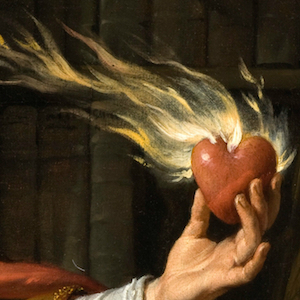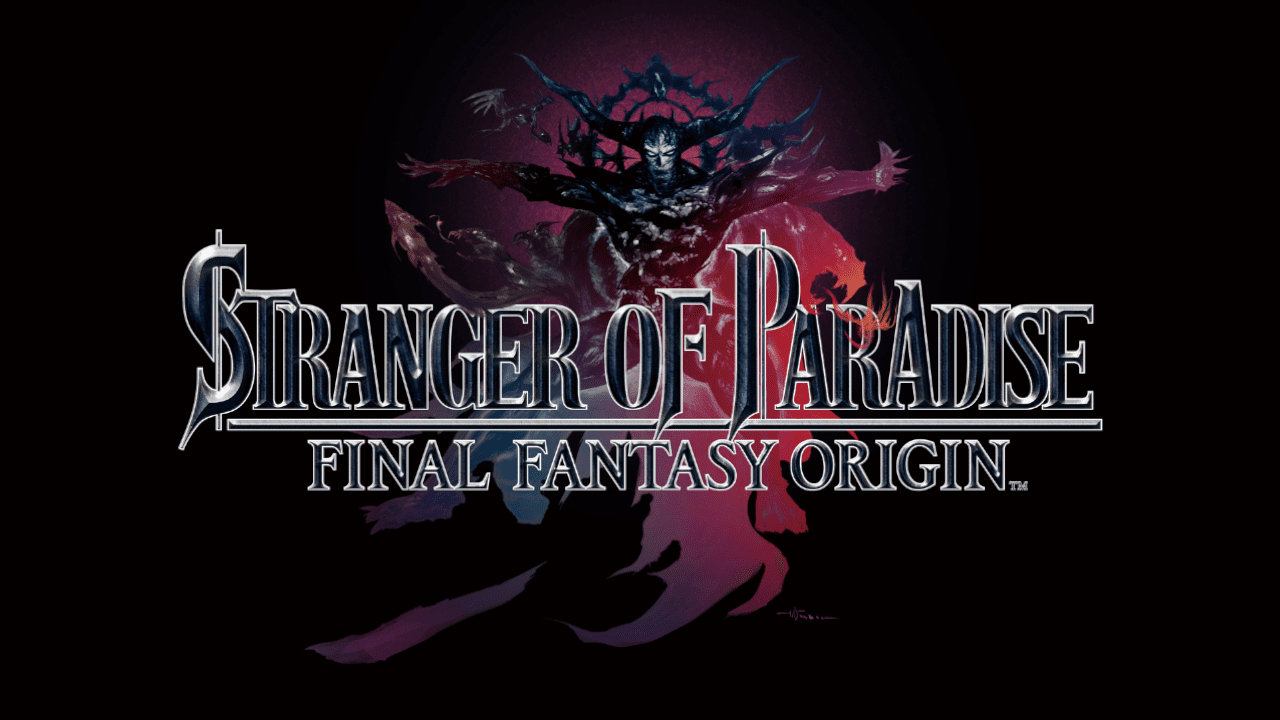
In 2021, the pre-E3 rumor mill whispered of a new Final Fantasy spinoff. The original game in the series, it was said, would be retold in a Dark Souls-style action-RPG developed by Team Ninja. The rumors proved mostly true when Stranger of Paradise: Final Fantasy Origin was revealed at the 2021 show. Rather than the interconnected worlds and slower, deliberate combat of Dark Souls, Stranger of Paradise was aiming at faster-paced fighting with tons of loot. Unfortunately, its trailer generated more jokes than hype, and the associated demo launched with some technical problems. Did Stranger of Paradise deserve a faulty first impression, or does it transcend the memes? With full conviction, I can confidently say – it depends.
(Note: I played the PS5 version for this review.)
Stranger of Paradise does indeed adopt the story of the original Final Fantasy in framing the events of the game. You’re thrust into the role of a surly warrior named Jack, whose fashionably tattered tee marks as out-of-place. Just as in Final Fantasy, you’re plopped in front of a Castle Cornelia with a couple companions and little context. You’ve forgotten who you are, but you are convinced you’re supposed to kill an evil entity known as Chaos.
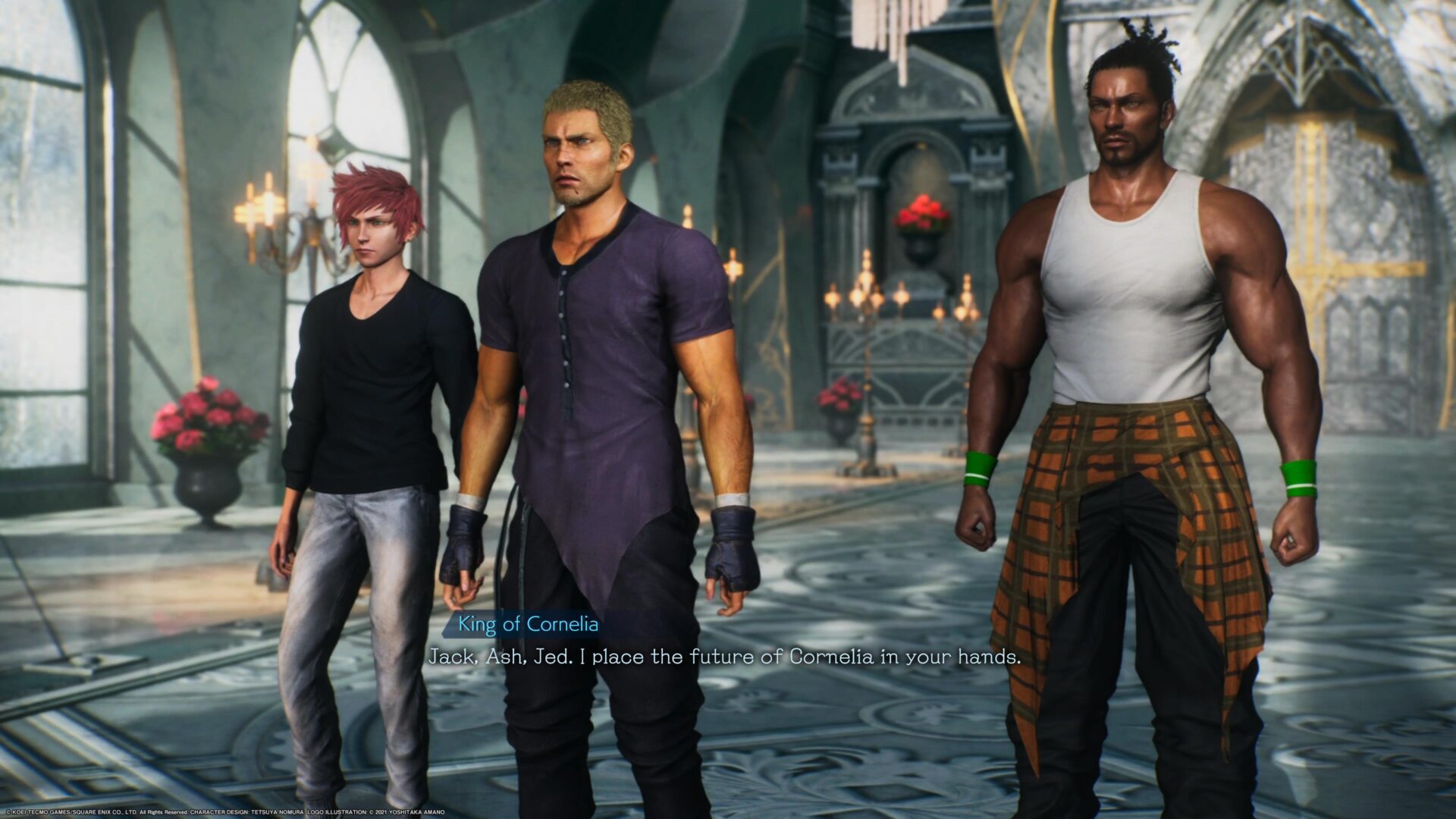
Your first mission takes you to the nearby Chaos Temple to defeat a nefarious knight with evil intent – so far, so Final Fantasy, but it’s there that it becomes clearer that Stranger of Paradise is more than a simple retelling or reboot of the original game. The ensuing quest to find and defeat Chaos slowly reveals more about Jack’s past and culminates in an interesting, if not entirely surprising, way.
But look at Jack. Stranger of Paradise isn’t some touchy-feely rediscover-your-past simulator nonsense. This is about chaotic combat, optimizing character builds, and the sweet, sweet loot. On these scores, Stranger of Paradise does not disappoint.
The main attraction here is the high-stakes, frenetic, and supremely customizable action combat. You have a veritable bonanza of choices to make, starting with Job classes. You’re in direct control of Jack, but are joined by up to three party-members, and in true Final Fantasy fashion you’ll assign your heroes Jobs inspired by those from the mainline games. Early choices are centered on their designated weapon of choice, such as the Swordsman or Pugilist, but you’ll eventually unlock the Paladin, Black Mage, Samurai, Dragoon, and many more. While your AI-controlled companions may only have a single job, you as Jack have the ability to equip two jobs at once that may be freely swapped in battle.
These jobs are distinguished primarily by their equipment constraints and Unique Actions, which are special abilities available only when that particular Job is active. These Unique Actions represent the signature abilities typical Final Fantasy Jobs are known for: Black Mages cast black magic, Dragoons can Jump, etc. Taking a cue from Final Fantasy V, Jobs also have various command abilities that can be learned and equipped at any time. Furthermore, each Job has a set of passive abilities that are enabled if your equipped gear possesses the sufficient amount of affinity matching the Job in question.
You’ll select armor both on the basis of those affinities, and on its statistical values – or maybe on true Final Fantasy fashion of a different kind. The weapons, on the other hand, dictate your playstyle and available attacks. Weapon types include one-handed and two-handed swords, daggers, katanas, maces, axes, fist weapons, and lances (no ranged weapons, at least in the base game.) Each plays dramatically differently: daggers are aggressive and evasive, maces have built-in parry options, while one-handed swords offer a balanced approach. Additionally, Jack’s two jobs have independent gear lists, so you needn’t worry that optimizing one class’s build might negatively affect or restrict your choices for the other.
Each weapon in turn has a list of combo-ender abilities that can be customized to your liking. Their slots are initially populated with the weapon’s default combo ender, but as you advance in your jobs, you’ll unlock new options for each weapon. Just as with command abilities, once you have learned a combo-ender, you need only to equip the ability, not the originating job. In addition to being another route of customization, it’s a good incentive to try out different jobs.
The confluence of all these systems results in some pretty satisfying encounters. For your part, in addition to maintaining your health, you’ll be managing your break bar and MP. Your break bar is chipped away with each successful block – or consumed on purpose with a technique called a Soul Shield. Soul Shielding can absorb an enemy’s attack at the cost of rapidly draining your break bar, but if you time it right you’ll earn a few charges of the absorbed ability to throw back at your opponent. Should you ever find yourself with an empty break bar you’ll be staggered and open to devastating attacks. Your MP, on the other hand, fuels your combo enders, command abilities, and Unique Actions, and is restored bit by bit with successful melee attacks. You can also increase your maximum MP by performing a Soul Crush: a maneuver available when you stagger your enemies (by emptying their break bars).
Fighting standard enemies won’t often try your patience, provided you have sufficient gear, but there are unique monsters like Tonberries who’ve got sinister combos that will force you to adapt your tactics. The boss encounters all require learning attack patterns, too, but are never quite as punishing as bosses from games like Dark Souls. Save point placements are far more merciful, too, so Stranger of Paradise feels a bit more respectful of your time than a Souls game…but then again I went hollow at Sen’s Fortress so what do I know?
Now, if you’ve read some of my other work here, you might assume I’m inclined to be biased towards this game, and you’d be right. Mixing and matching equipment and abilities inspired by games across the series was a nostalgia trip for which I am squarely in the target audience. However, the world/level design and graphical fidelity could be a turn-off for less fervent Final Fantasy fans.
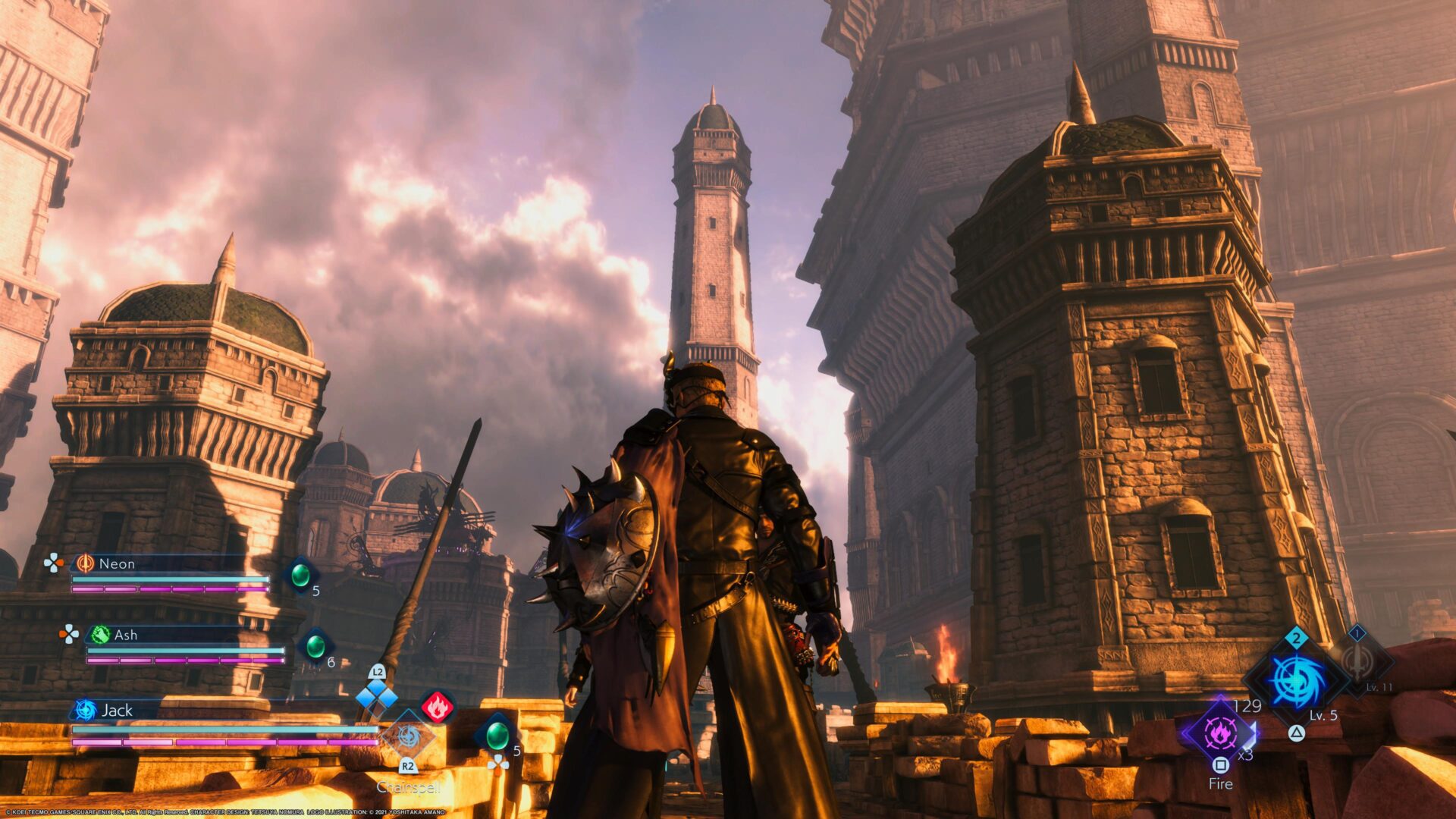
As was noted briefly above, Stranger of Paradise does not have a single interconnected world to explore. Instead, you’re given individual levels based on environments from each mainline entry up to and including XV chosen to fit within the contours of the heroes’ path in Final Fantasy. A couple games in the series get short shrift for the sake of fitting into that path, but for the most part it’s still a treat for a series fan, especially seeing environments that haven’t been brought to life in this way before. Indeed, some of the levels were particularly inspired choices, but I don’t want to spoil which ones.
However…you’re going to have to look past some graphical issues. The intricate gear and flashy combat effects always looked good to me, but the environmental textures seemed a little grainy and out-of-date. Selecting the prioritize-graphics mode on PS5 helped a little – and did not cause a noticeable performance drop – but this is definitely an area where Stranger of Paradise falls a bit short.
The soundtrack, on the other hand, was decently strong to my ears – but it’s difficult to gauge how much of that is my own predisposition to the series’ tunes. The level and battle themes draw inspiration from the mainline games just as the missions do, though they are arranged in such a way that feels at once distinct from the originals and cohesive as part of Stranger of Paradise‘s score. As for the voice acting and characterization: your mileage may vary. There’s an almost 80’s B-movie machismo going on with Jack and Co., which I usually found amusing as a counterpoint to the ambient melodrama, but some may find it grating. (And it’s not without vulgarities.)
Hence, a recommendation depends on a number of factors. The combat mechanics may be addictive enough on their own to interest players more casually interested in Final Fantasy, but in a world where Diablo IV and a myriad of looter-shooters exists, there’s plenty of action-RPG lootfest competition. For a series fan, though, Stranger of Paradise is an easy sell. If you’re an avid Final Fantasy fan who enjoys experimenting with different job combinations, and want to see the mainstay job classes in a new context, the game is a blast.
Now, can we find any spiritual and moral substance amidst the chaos? (As usual, some spoilers ahead, though I’d contend I’m not revealing the real twist. If you are already aware of Jack’s full name from the game’s promotional material and have played the original Final Fantasy, what follows will not contain significant surprises.)
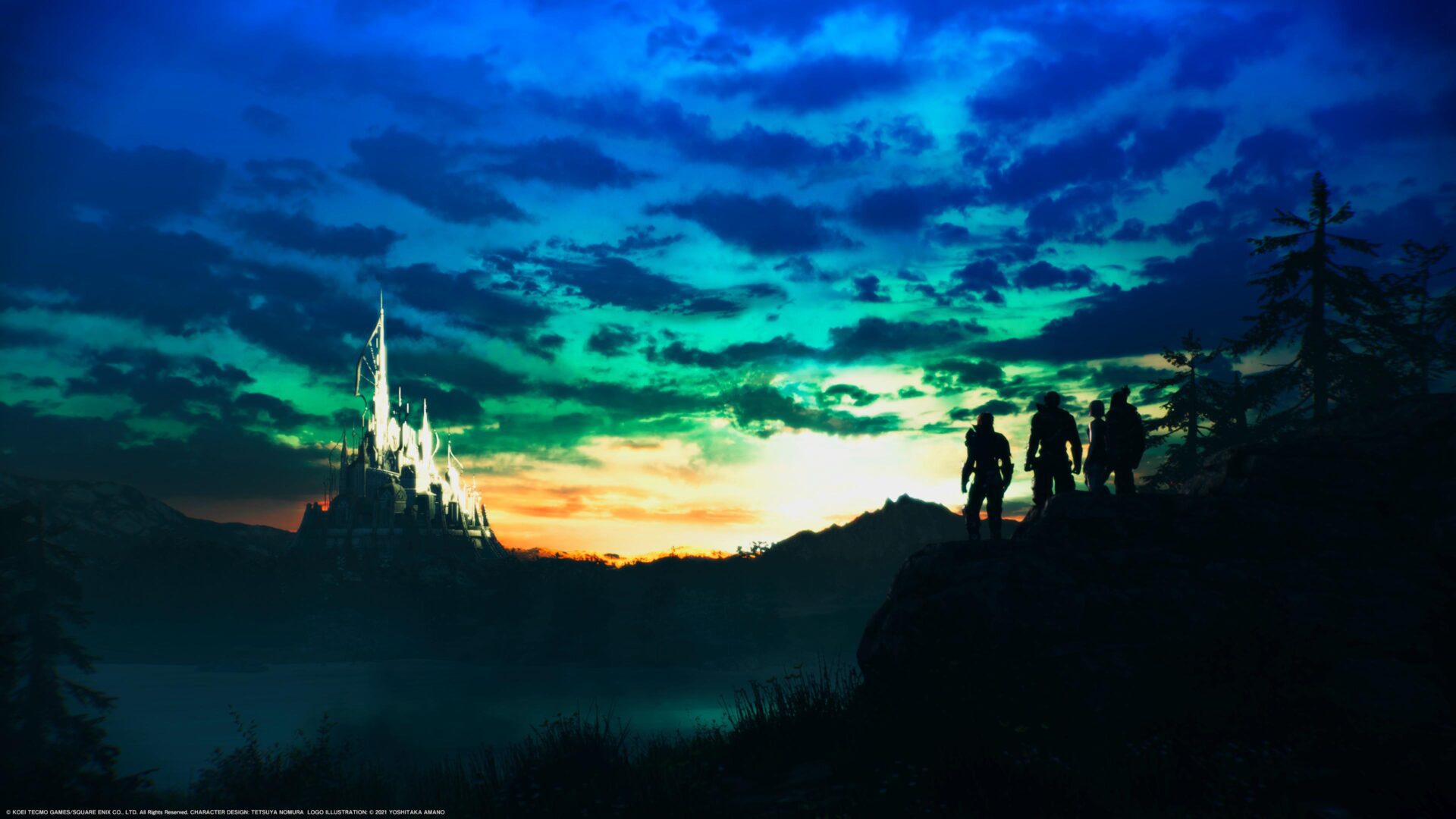
There’s some interesting tension explored early on when different characters propose different interpretations of who or what Chaos is. Cornelia’s king suggests to Jack that Chaos is simply an anthropomorphization of the broken nature of their world, and that by restoring the crystals, Jack and crew will have “defeated” Chaos. Jack is unconvinced, as just about the only thing he can remember is a conviction that Chaos is a real, singular being who must be destroyed. Jack is vindicated in the end, as it turns out Chaos is a real being…but instead of defeating Chaos he essentially replaces him. Jack’s wrath in the face of revelations about the game’s true villains prompts him towards heinous acts which he justifies as part of a plan to save the world even as he assumes Chaos’s role.
In portraying Jack’s descent, Stranger of Paradise sort of tries to have it both ways. It certainly does not hide the bloody road Jack is about to walk, but also tries to cast him as heroic in the denouement. Instead, he’d probably be better read as a Saul-like figure. He’s chosen for a leadership role he didn’t ask for, starts off with some important victories, but ultimately believes himself to be the arbiter of right and wrong, and is consumed by his sins.
Either way, I think we can see in Jack the dangers of wrath and pride. His initially justified anger metastasizes into a single-minded hatred of his enemies, and in that hatred he rationalizes behavior that is destructive both to himself and those close to him. His sins turn him into a demonic force in his world, which we can take as a warning regardless of the way Stranger of Paradise intends to cast its antihero. We cannot do evil such that good may come from it. With God’s grace may we practice humility and avoid following Jack’s example.
Parental Warnings
Violence: It’s definitely a violent, bloody game, though closer to what you’d see in God of War: Ragnarok than recent entries in the Mortal Kombat series. The most gruesome finishing maneuvers are reserved for the various beasts you fight, but you’ll do battle with human pirates on occasion.
Suggestive Themes: Princess Sarah is revealingly clad, but there’s little overtly suggestive from a plot perspective. There’s some elementals you fight that have a somewhat sexualized design, but the game doesn’t really focus on that outside of one of their attack animations.
Language: Jack’s got a foul mouth with which he punctuates a number of pivotal moments.
